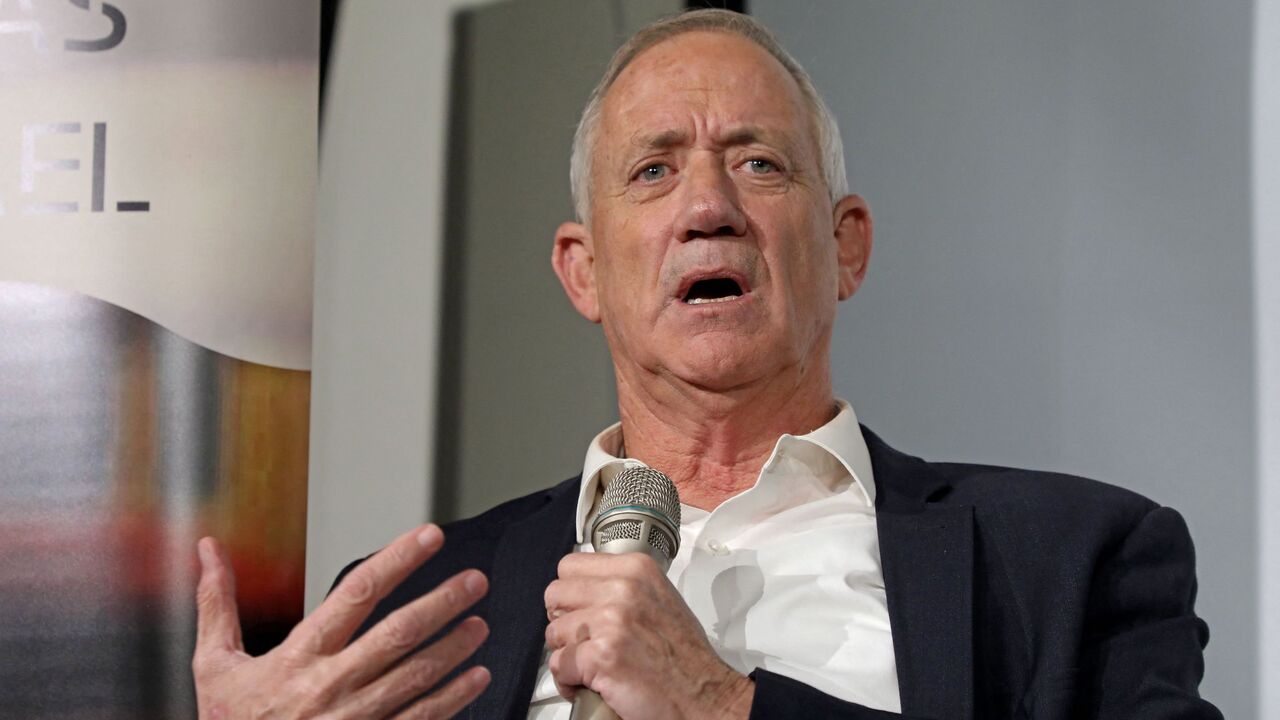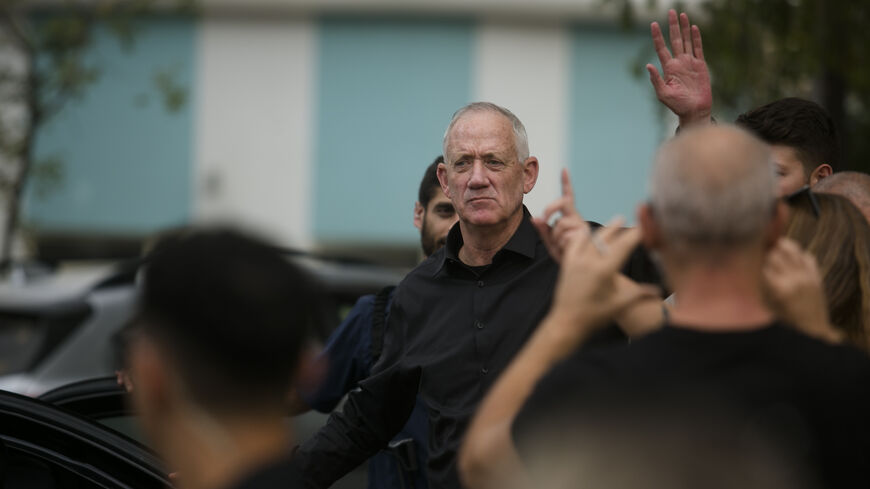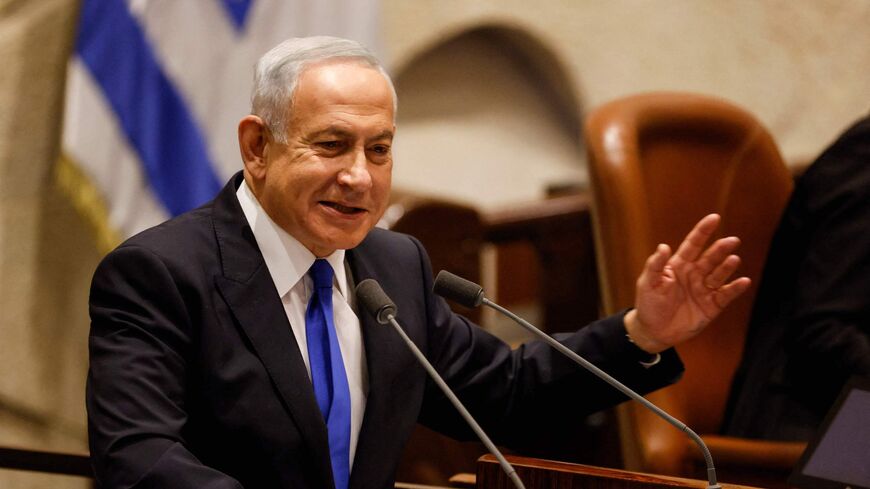Gantz calls for early elections in Israel, warns of 'rift in the nation'
Prime Minister Benjamin Netanyahu rejected the demand by war cabinet Minister Benny Gantz to set up elections this coming fall, in order to regain the trust of the Israeli public after Oct. 7.

War cabinet Minister Benny Gantz called Wednesday evening for elections to be held as early as September this year in order to "prevent a rift in the nation," a proposal immediately rejected by Prime Minister Benjamin Netanyahu.
Addressing the National Unity Knesset faction he heads, Gantz referred to the violent protests that took place in recent days in Jerusalem calling on the government to resign over its failure to prevent the Oct. 7 Hamas attack and its failure to reach a deal for the release of the remaining hostages held in Gaza.
Currently the next national elections aren’t set to be held until October 2026.
"The public must know that we will soon return and ask for their trust, that we will not ignore the disaster on Oct. 7 and what preceded it," said Gantz. He added, "That is why we must agree on an election date during the month of September, ahead of marking one year to the war." According to Gantz, "An agreed-upon election date will leave us time to continue the security effort, and it will also allow the citizens of Israel to know that we will soon renew the trust between us. This will prevent a rift in the nation."
Netanyahu has seen his approval ratings plummet since Oct. 7. A March 22 poll by Maariv showed that the prime minister's Likud party would win 17 of the Knesset's 120 seats if elections were held now, compared to the 32 it won in the most recent election in 2022. Meanwhile Gantz's National Unity camp, which won 12 in the previous election, would get 35 seats.
While condemning the violence in the protests, Gantz also expressed understanding to the distress of the families of the hostages. "Precisely at this time, with all the difficulties, we must make an effort and maintain our unity. We need not put our differences aside but be careful to manage our disagreements in a way that will allow us to continue fighting together," said Gantz. "What is happening in the corridors of the government and on the streets is dangerous and must be stopped. We must not act insensitively toward the families of the hostages. It would have been right to accept their request of canceling the Knesset recess" set to start next week.
New Hope party head Gideon Saar announced last week that he was breaking up his political alliance with Gantz’s National Unity party and leaving the government, explaining that he did not see eye to eye with the way the war cabinet was managing the war in Gaza. Rejecting the demand for early elections, Netanyahu’s Likud party claimed it was because of the breakup of his political alliance that Gantz was now interested in setting an election date. "At this fateful moment for the State of Israel and in the midst of a war, Benny Gantz must stop engaging in petty politics just because of the disintegration of his party," read the Likud’s statement, adding that "elections now will inevitably lead to paralysis, division, damage to the fighting in Rafah and fatal damage to the chances of a hostage deal."
Quoting political sources, Ynet said that Gantz had made an offer to Netanyahu two weeks ago whereby the prime minister would agree to an early election date in exchange for Gantz agreeing on a compromise over a controversial law that would anchor military service exemption for ultra-Orthodox students. The Likud, said Ynet, rejected the offer.
Over the past six months, Netanyahu has not taken responsibility for the Oct. 7 events, but he did say that an inquiry will take place after the Gaza war ends. In contrast, heads of the security system took responsibility for the failures, and the Israeli military said it was starting an investigation into its conduct before Oct. 7 and on that day.







